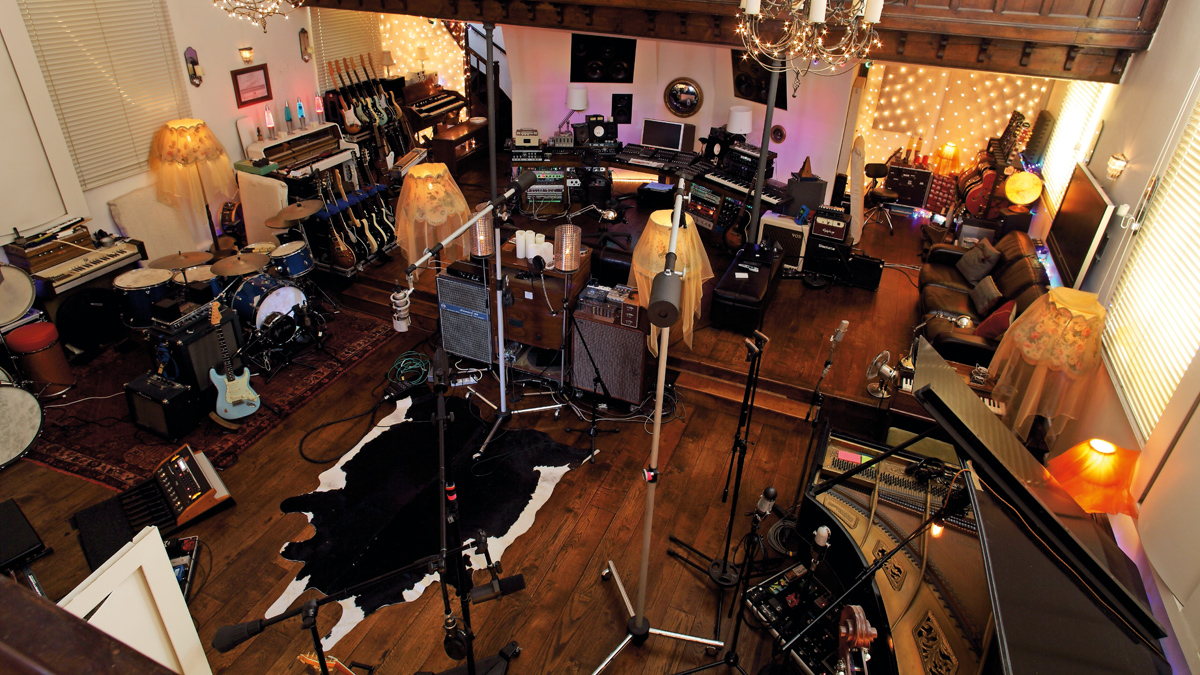6 things you need to think about before you rent a recording studio space
Don't sign on the dotted line until you've read this...

Renting a studio space can be a great option for those without the room or inclination to put together a suitable facility in their own home.
However, just like renting a house, there are pitfalls to be aware of before you sign on that dotted line. Read on…
1. Amenities
Electrical/acoustic practicalities tend to dominate studio build thinking, but make sure you don't forget the human needs.
Top of this list is toilet/bathroom access. If sharing these facilities, be aware of who's responsible for their upkeep. Food prep/storage and access to drinking water is essential, though it may again be a shared amenity.
Also, be aware of proximity to shops and pubs, as this can make or break long studio sessions...
2. Services
Many leases will include a service charge, often biannual or quarterly, to cover upkeep costs outside of basic utilities (electricity, gas, water and internet). This can include upkeep of shared spaces, service lift maintenance, or pretty much anything the landlord can dream up (it can be a problem with less scrupulous ones).
Be sure you understand what these charges will include before signing any lease agreement. It's a legal obligation to provide tenants with itemised billing on service charges.
Want all the hottest music and gear news, reviews, deals, features and more, direct to your inbox? Sign up here.
3. Access
Moving musical and recording equipment is never fun, so factor in your needs in this regard.
Ground floor access is always preferable, but failing that, make sure there's a service lift. It may be that you work light, only carrying a laptop to and from sessions, but be aware that any construction materials would have to be hauled up flights of stairs.
Vehicle access and parking is another major consideration when locating your studio. Make sure you can get a vehicle close to the entrance, if not into a loading bay.
4. Size
Factor in the additional space needed for acoustic isolation and control systems. Not only do the walls and ceiling take up serious space, but the floor will most likely need floating, and this can really eat into available height. Plan to lose around 10-20% of all dimensions in a room, and up to 25% in small rooms.
You may find that bulky acoustic control systems, such as bass traps and wideband absorbers, can be focused on front and rear walls to keep width, so the dimensional losses may not be uniform.
5. Rental Models
Do try and look beyond standard landlord/agent rentals. Artist studio spaces and small business parks/centres are worth consideration; rents are often kept affordable, they're community centred, can be used to people making a mess, and, importantly, offer short term leases.
Remember, nobody wants to be near a recording studio, so be prepared to allay fears about noise and loitering musicians. It can be worth writing a short proposal of how you plan to soundproof your workspace to produce less noise than most other tenants, as people tend to discriminate against musical noise even at the same volume as, say, carpentry tools.
6. Sharing
Reduce the financial burden by sharing your studio with others. Having partners who can buy you out, or be bought out, allows for future flexibility.
Of course, sharing entails negotiating time, cleaning, repairs, and all the fun of other people's habits, but it can expand networking opportunities and improve security due to more regular occupancy.


Future Music is the number one magazine for today's producers. Packed with technique and technology we'll help you make great new music. All-access artist interviews, in-depth gear reviews, essential production tutorials and much more. Every marvellous monthly edition features reliable reviews of the latest and greatest hardware and software technology and techniques, unparalleled advice, in-depth interviews, sensational free samples and so much more to improve the experience and outcome of your music-making.
